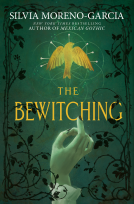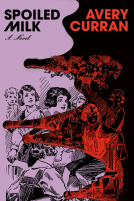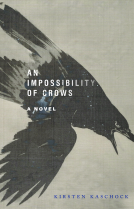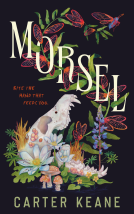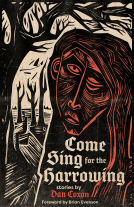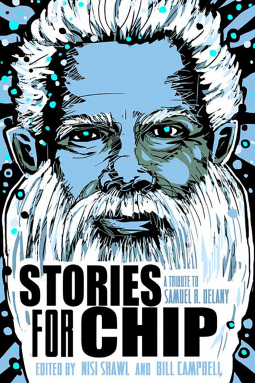
Stories for Chip
A Tribute to Samuel R. Delany
by Nisi Shawl and Bill Campbell
This title was previously available on NetGalley and is now archived.
Send NetGalley books directly to your Kindle or Kindle app
1
To read on a Kindle or Kindle app, please add kindle@netgalley.com as an approved email address to receive files in your Amazon account. Click here for step-by-step instructions.
2
Also find your Kindle email address within your Amazon account, and enter it here.
Pub Date Aug 03 2015 | Archive Date Aug 10 2015
Description
Advance Praise
—William Gibson, author of Pattern Recognition
“Samuel R. Delany sits at the crossroads of the story of SF. Explore any path—why SF matters, how, to whom—and he is there, beaming, either in person or reflected in the writers forging ahead. This book of beautiful, brilliant stories, fiction and nonfiction, shows us why he matters so much—and how, and to whom. All of us, of course.”
—Nicola Griffith, author of Hild
“This anthology rocks your mind, rolls your heart, and makes you tingle all over. Nisi Shawl and Bill Campbell have curated an entertaining and provocative volume, a whirlwind tour of the mythic, science fictional landscape that Delany engendered. These stories, essays, and memoirs are sensuous encounters with Delany, an ongoing conversation in the delanyesque universe. A polymath geek fest! Stories for Chip is a perfect tribute to a creative genius, a theoretical titan, and a great adventurer.”
—Andrea Hairston, author of Redwood and Wildfire
“This lovingly made tribute to Samuel R. Delany is packed with tiny delights. Stories that are as diverse as they are refreshing to the palate. A blend of so many different voices and takes on the influence of this great author--one could only dream that in the winter of one’s career such a collection could be constructed in one’s honor.”
—Jennifer Marie Brissett, author of Elysium
“A powerful testimonial to the impact Delany has had in inspiring so many of this generation’s diverse voices.”
—Tobias Buckell, author of Arctic Rising
“A tribute to one of the great geniuses of science fiction, this diamond of a book has stories as multi-faceted, brilliant, and wickedly sharp as Delany himself.”
—Ellen Klages, author of The Green Glass Sea
Available Editions
| EDITION | Hardcover |
| ISBN | 9781495601958 |
| PRICE | $28.95 (USD) |
Links
Average rating from 14 members
Featured Reviews
An uneven, but still fascinating collection of stories and essays in tribute to Grand Master Samuel R. Delany. My NetGalley ebook did not include the acknowledgments page so I'm not sure of the copyright dates on some, but there are several I would recommend for a Hugo next year if new, especially the essays. Full review at http://templetongate.net/storiesforchip.htm
 Reviewer 93548
Reviewer 93548
Stories for Chip is mix of 33 pieces, some are fiction and others are nonfiction. Unfortunately there wasn’t an introductory essay explaining the rationale for the pieces chosen nor for the organization of the book. Perhaps this will be added in a later release of the book, I do not know. As I read the book I felt jolted from one story, one experience to the next. However that is what is most outstanding about this book. There is a fabulous diversity of writers and modes of expression – this group is multi-gendered, multiracial, multiethnic, and international. The aggregate of all of those points of view and types of literary expression does truly make the whole greater than the sum of its parts.
 Reviewer 224449
Reviewer 224449
3 1/2 stars
So, a confession. I haven't finished any Delany. Yet. I've been meaning to, and I will, but I just haven't gotten to it yet. But when I saw this collection and some of the authors that contributed, I was very interested. It's a really interesting collection, and I really liked most of the stories. However, I didn't care as much for the creative nonfiction that was interspersed among them. Overall, this was a very good collection - I especially appreciated the wide variety of authors.
 Daniel H, Reviewer
Daniel H, Reviewer
Publishing since the age of twenty, Samuel R. Delany is a highly respected novelist and literary critic alike. Familiarly known as “Chip”, Delany has written science fiction and fantasy (SFF) known for pushing boundaries, for challenging the notions of speculative genres, and experimenting with approaches to literature in general. Delany’s writing both subverts conventions and transcends fiction to explore social realities, most notably the existence of the Other. Indeed, as a man who could be described with terms such as academic, homosexual, polymath, African-American, and intelligent, Delany writes from the point of view of the Other, a spectrum of under-represented perspectives within SFF.
Both Delany’s fiction and nonfiction have been hugely influential, inspiring, and appreciated, partly due to this unique vision. However, his works have also resonated so strongly because Delany’s vision is not just unique, but uniquely brilliant, honest, and perceptive. With all of its challenges and transgressions against comfortable familiarity, Delany’s work strikes universal human chords, conveying both beauty and progressive encouragement.
Delany’s 1975 novel of apocalyptic literature, Dhalgren, remains the best-known representation of the themes to his fiction, and so far happens to be the only piece of fiction I’ve read by the author. (It is hard to read past works when it’s so much to just keep up with the new wonders!) Thus, reading a recent collection of works written in appreciation of Delany reminded me a lot of my experience reading an issue of The Magazine of Fantasy & Science Fiction in tribute of Gene Wolfe soon after starting to really read extensively. At the time utterly unfamiliar with the author, much significance was surely lost to me. Nevertheless, how I did enjoy it despite its challenges and personal obscurity.
Stories For Chip: A Tribute to Samuel R. Delany, published by Rosarium Press and edited by Nisi Shawl and Bill Campbell, is a remarkable collection of both fiction and essays that very correctly does not aim to emulate Delany’s style, or even to copy the precise themes of his highly personal works. Yet, elements that echo Delany are certainly present in the fiction here, from eroticism to explorations of identity and perception.
At times surreal, the stories here are often as subversive and challenging as Delany’s own writing, making the collection no light reading. But as with Nisi Shawl’s own collection Filter House, this anthology will be meaningful to the right readers, and bears repeated readings. Of the thirty-three pieces that make up the collection, nine are reprints and the remainder original. Of the reprints, Junot Díaz’s “Nilda”, first published in The New Yorker, is likely the only one that probably reached a particularly large audience.
The nonfiction essays of the collection are mostly focused reflections on Delany’s works and influence, in a broad (Imarisha’s essay), individual (Swanwik’s), or combined (Lavender’s) context. This avoids including critical essays that try to tackle Delany’s own academic interest and experience directly, and it also provides readers who may be more new to Delany some context for appreciating some details of the story a bit more. Without any editorial comments from Shawl and Campbell (which honestly would have been still nice), these essays become near essential for some readers. I’ve previously enjoyed a collection of essays edited by Lavender, so reading more in this vein was welcome.
Like the contributors to the collection, the writing itself covers a significant diversity. A few instances of fiction, particularly the opening story by Eileen Gunn, are even closer to exercises in creative nonfiction. My personal two favorite stories among the fiction offerings were those by Claude Lalumière and the collaboration between Nalo Hopkinson and editor Shawl. Lalumière’s “Empathy Evolving as a Quantum of Eight-Dimensional Perception” falls into one my favorite categories: the weird alien encounter. In this case octopuses that dominate a far future Earth discover a human time traveler and attempt to absorb understanding of this strange creature. “Jamaica Ginger” by Hopkinson and Shawl is a far more “conventional” steam-punk tale that provides the most pure enjoyment from the collection.
Though I was going to limit myself to two, I just can’t help also mentioning Chesya Burke’s “For Sale: Fantasy Coffins (Ababuo Need Not Apply)” and Sheree Renée Thomas’ “River Clap Your Hands”, a pair of fantasies each with intense emotional resonance and powerful characterization.
Stories For Chip is a collection that both makes you want to go and (re)discover what was so special about Delany while also look for more by some authors that are likely unknown to most readers. No work is really “for everyone”, but people who are looking for depth and diversity and challenges compared to what they may normally encounter in the SFF genres should find much to appreciate in this tribute anthology.


